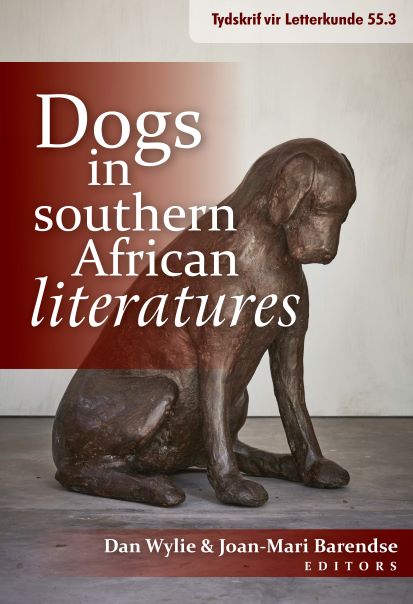Wildness and colonialism in “The Story of Two Dogs” by Doris Lessing
DOI:
https://doi.org/10.17159/2309-9070/tvl.v.55i3.5507Keywords:
colonialism, dogs, Doris Lessing, wildnessAbstract
Dogs play an important role in colonial society, especially in Africa. While the project of colonisation involves settling in a new country and confronting wild animals, the dog is one animal on which the settler can rely as an ally, protector and companion. Settler dogs whose breeds stem from Britain are in a sense the animal counterpart of the human settler. When these animals desert their owners either by cross-breeding with indigenous dogs or reverting to the wild, it can seem like a betrayal of their settler owners and of the colonial project. Doris Lessing explores this dilemma in “The Story of Two Dogs” which is a semi-autobiographical story of her family and their dogs. She grew up in the 1930s on a farm in colonial Rhodesia. Lessing creates an ironical narrative voice that undermines colonial discourse and exposes racial and class prejudice among the settler community. Through the lens of the dogs she also draws attention to gender conflict and the subjugation of women in matters of dog training and hunting. In addition, conflict between adults and children is brought out which points to possibilities of a more open approach to the question of dog breeding, training and ownership. She also raises questions about the ultimate nature of the dog and its status as a domesticated animal.
Downloads
References
Chennells, A. “Doris Lessing: Rhodesian Novelist.” Doris Lessing Newsletter, Vol 9, no. 2, 1985, pp. 3–7.
Fitzpatrick, P. Jock of the Bushveld. Longmans, Green and Co., 1957.
Haraway, D. J. When Species Meet. U of Minnesota P, 2008.
Hunter, E. ‘A Sense of Place in Selected African Works by Doris Lessing’. Unpublished PhD Thesis, University of Cape Town, 1990.
Kennedy, D. Islands of White. Duke UP, 1987.
Lessing, D. The Sun Between Their Feet: Collected African Stories, Vol. 2. Flamingo, 1994.
Lessing, D. Introduction to The Sun Between Their Feet. Michael Joseph, 1973.
Lessing, D. Under My Skin. Harper Collins Publishers, 1994.
Louw, P. ‘Wildness’ in Doris Lessing’s African Stories. Unpublished MA thesis, University of Zululand. 2003.
McHugh, S. Dog. Reaktion Books, 2004.
Mills, S. Discourse. Routledge, 1997.
Murphy, P. “Anotherness and Inhabitation in Recent Multicultural American Literature” in Kerridge, R. and Sammells, N,. eds: Writing the Environment: Ecocriticism and literature. Zed Books, 1998.
Ndlovu-Gatsheni, S. J. “Re-thinking the Colonial Encounter in Zimbabwe in the Early Twentieth Century.” Journal of Southern African Studies. Vol. 33, no. 1. March 2007, pp. 173–191.
Simoes da Silva, Tony. “Narrating a White Africa: Autobiography, race and history.” Third World Quarterly, vol. 26, no. 3, 2006, pp. 471–478.
Snyder, G. The Practice of the Wild. North Point Press, 1990.
Stiebel, L. “Imagining Empire’s Margins: Land in Rider Haggard’s African Romances.” Alternation, vol. 5, no. 2, 1998, pp. 91–103.
Tropp, J. “Dogs, Poison and the Meaning of Colonial Intervention in the Transkei, S.A.” The Journal of African History, vol. 43, no. 3, 2002, pp. 451–472.
Watkins, S. Doris Lessing: Contemporary World Writers. Manchester University Press, 2015.
Woodward, W. The animal gaze: animal subjectivities in Southern African narratives. Witwatersrand UP, 2008.
Downloads
Published
Issue
Section
License
Copyright (c) 2018 Tydskrif vir Letterkunde

This work is licensed under a Creative Commons Attribution-ShareAlike 4.0 International License.


 https://orcid.org/0000-0001-6465-6584
https://orcid.org/0000-0001-6465-6584


.png)